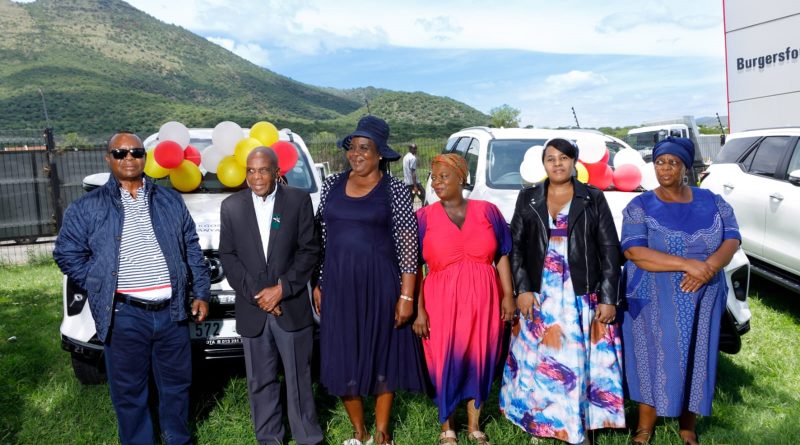Marula Community Chrome (MCC) helps drive community development
Traditional leaders play a crucial role in community development and are often the drivers behind ensuring that basic services are brought to the most rural areas in South Africa. As the recognised voice of communities, they also ensure that the needs of rural communities are heard and addressed, promoting dignity and equality in underserved areas. This is typical of the six host communities around the Makgomo Chrome project, which are served by six highly respected Magoshis who take seriously their roles within their communities.
It is a commonly known fact that our roads in South Africa need urgent repair, which is even more evident across these six communities. For the Magoshis, these conditions make it very difficult for the traditional leaders to execute their duties and to engage effectively with community members.
It was for this reason that the Marula Community Chrome Board considered and approved a request to support the Magoshis by providing them with the necessary transport to fulfil their duties. The Board’s Audit and Risk Committee oversaw the procurement of the vehicles.
Marula Community Chrome (MCC) is the community-owned company which holds a 50% share in Makgomo Chrome and is mandated to identify and implement developmental projects within the six communities with the proceeds it receives from the chrome processing project. Its directors are appointed by the seven community trusts and hold responsibility for collectively considering and deciding on the requests placed before them.
“Our primary objective is to promote community development across the six communities we serve,” said MCC Chairman, Dr Kinesh Pather. “To do this we must assist the Magoshis to undertake their very important cultural and traditional responsibilities within their communities.”
On 6 December 2023, the six Magoshis each received a strong and reliable vehicle, equipped with the necessary safety accessories and an extended warranty and service plan to ensure the vehicles are properly maintained.
The vehicles were mostly funded from surpluses from budgets on other projects that the company is currently engaged in, and therefore has little impact on the money designated for community development projects.
“We do believe that this is an essential step in creating a collaborative and comprehensive approach to community upliftment and we look forward to working closely with all our stakeholders to achieve this shared goal,” adds Dr Pather.




